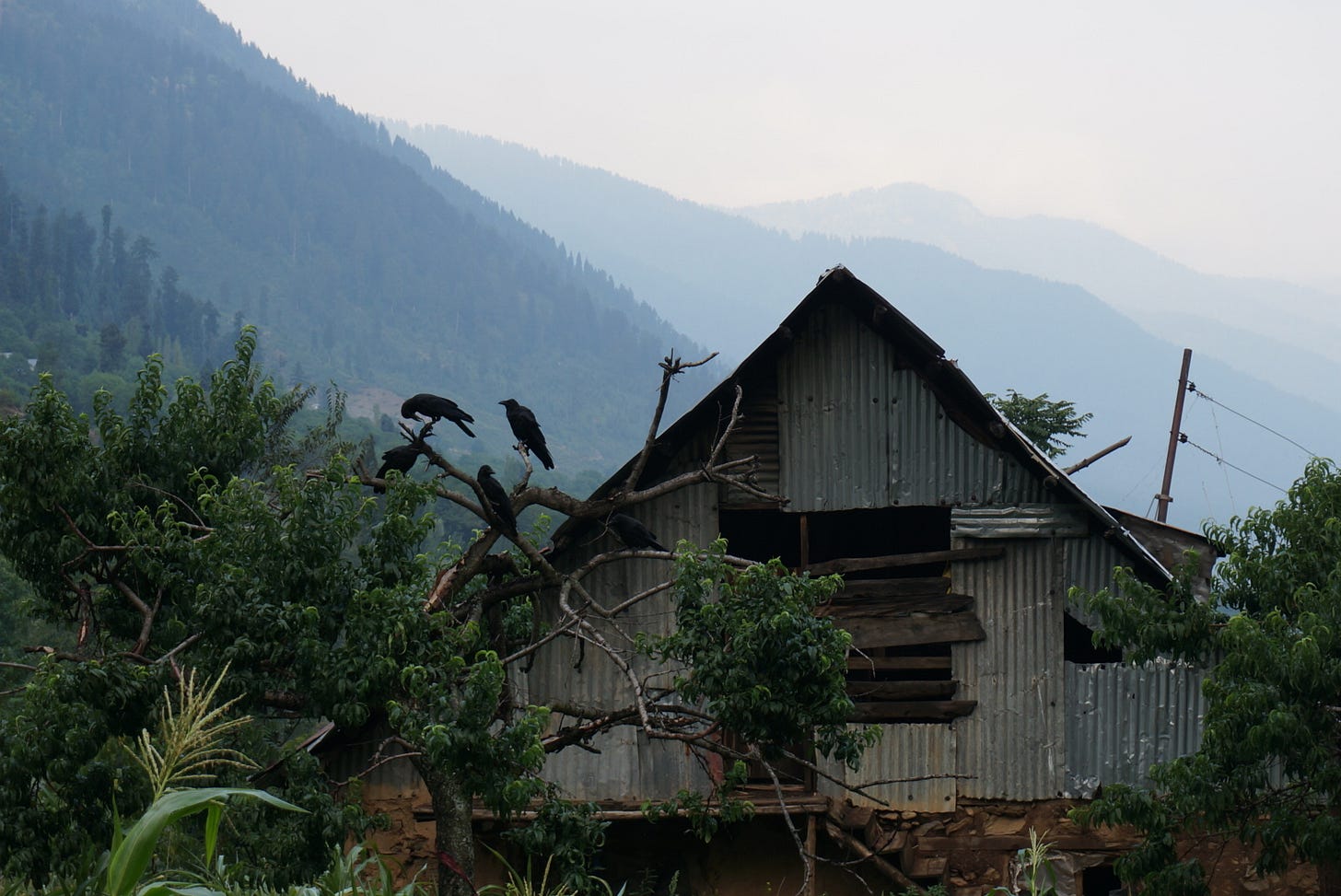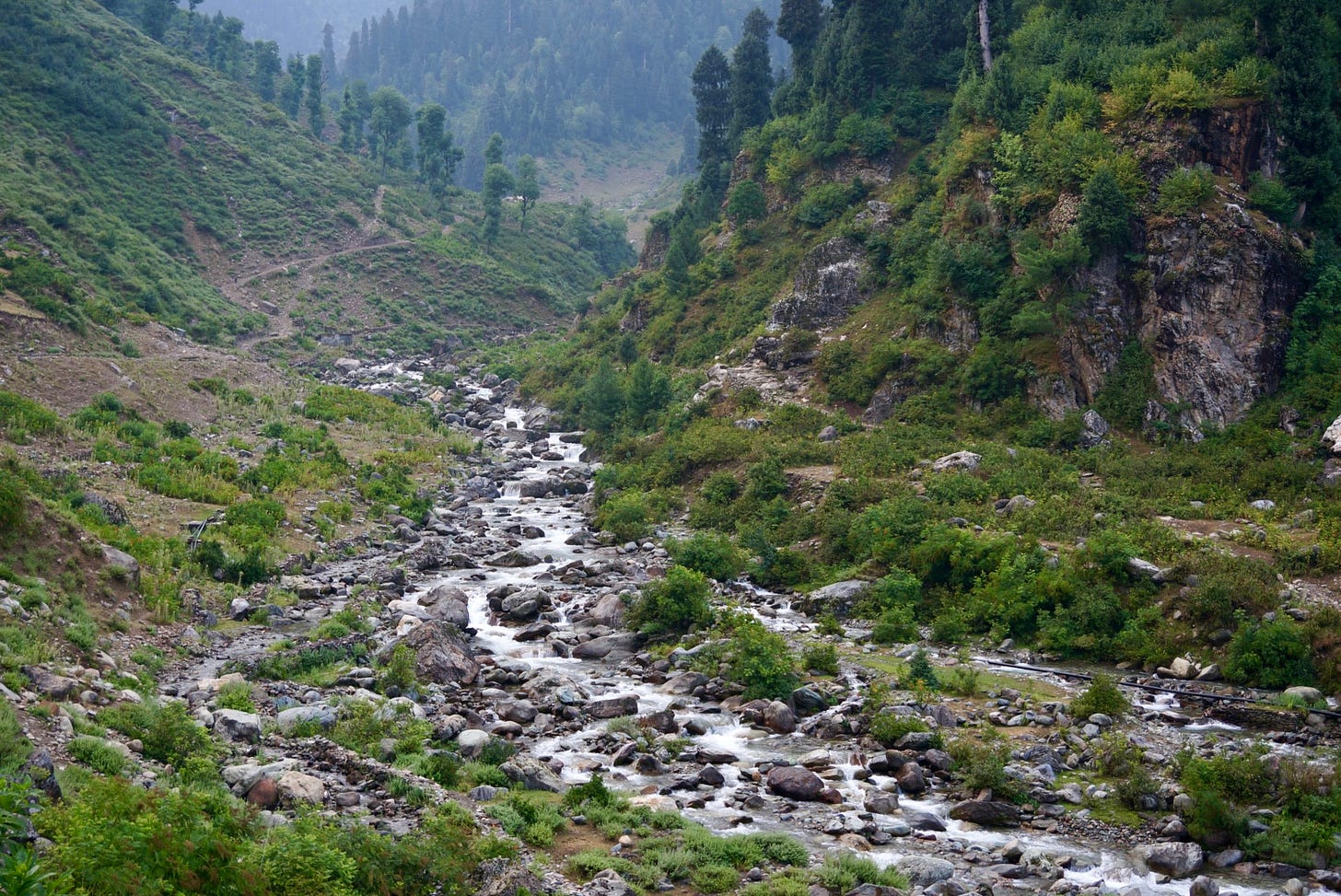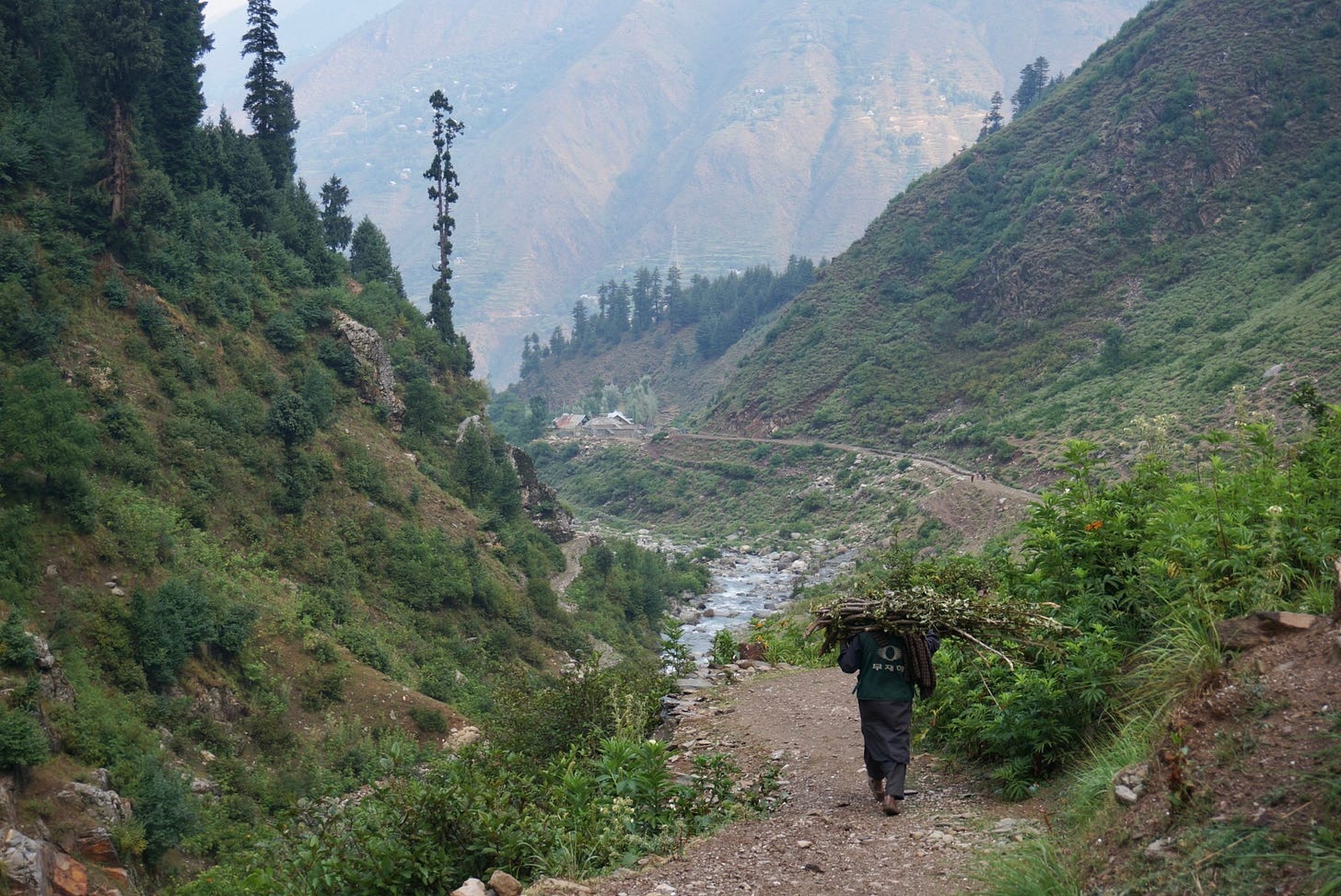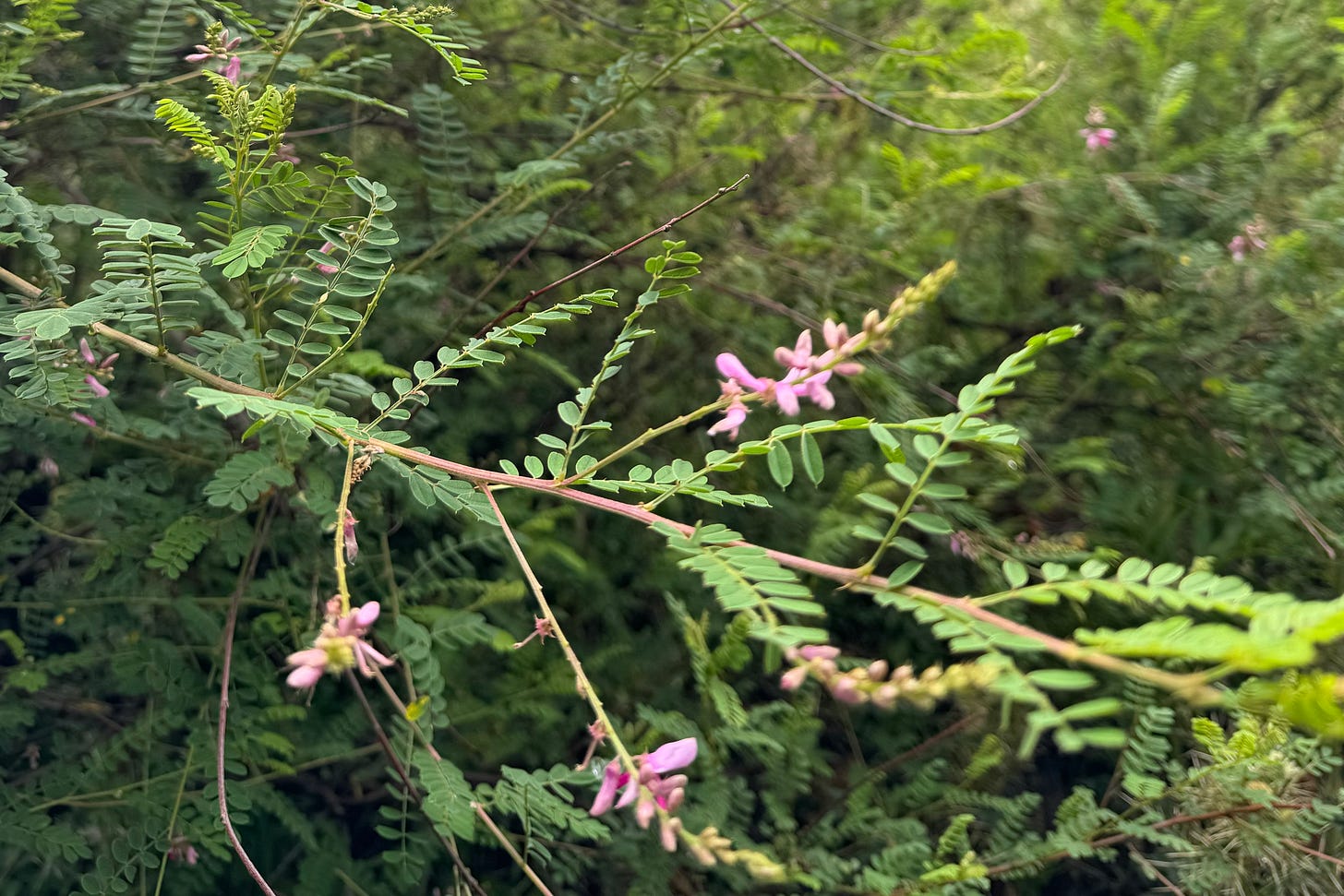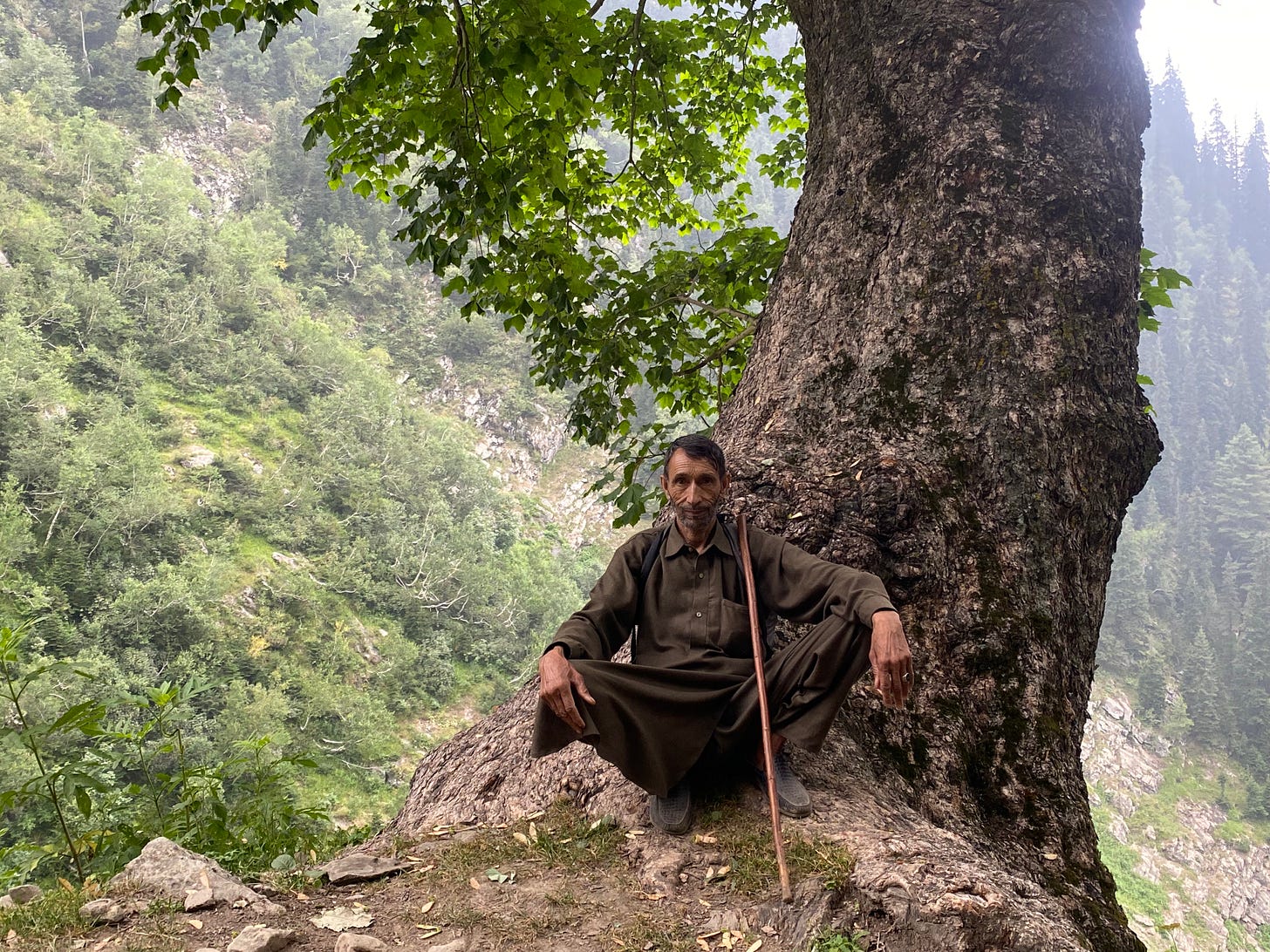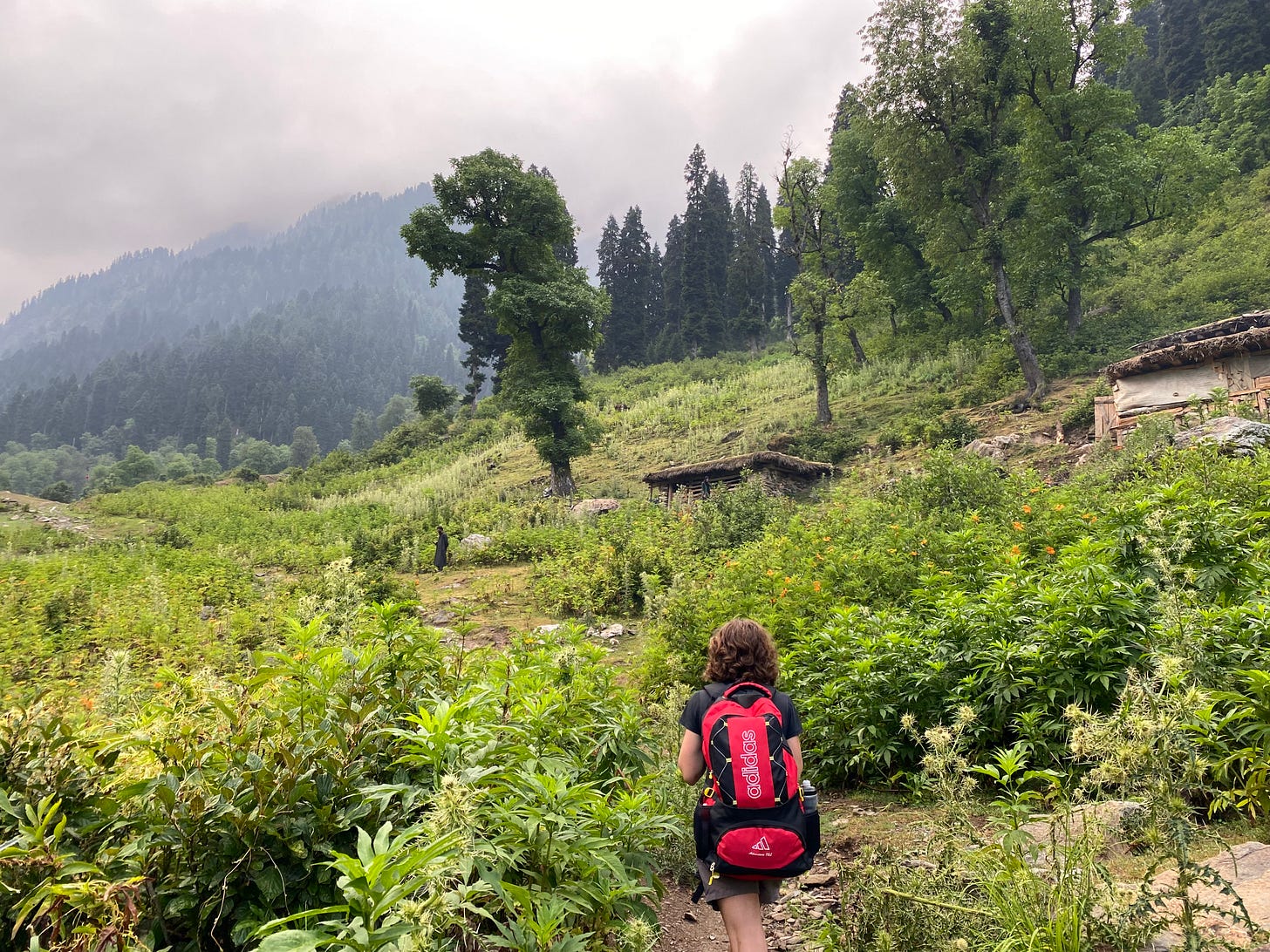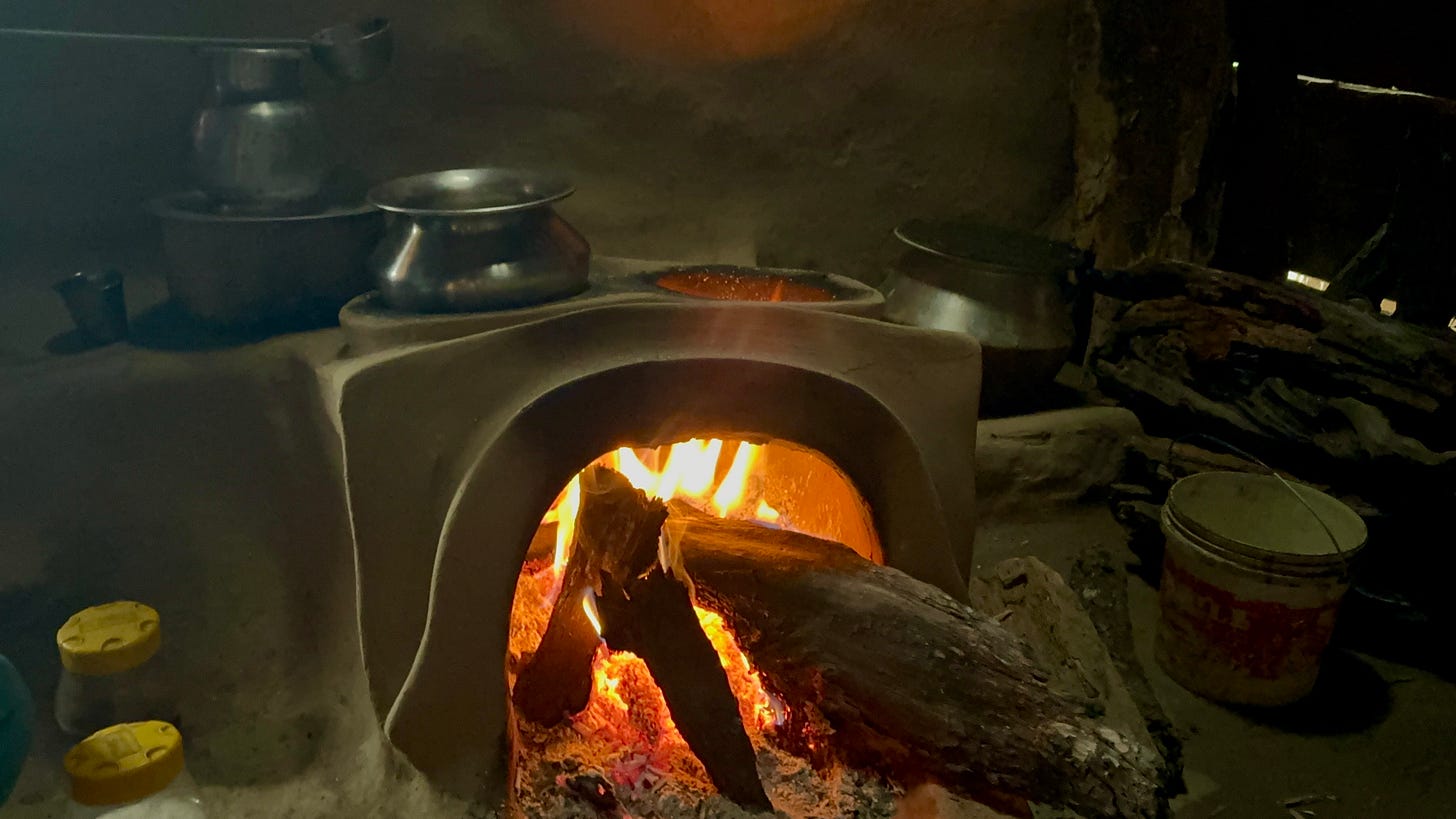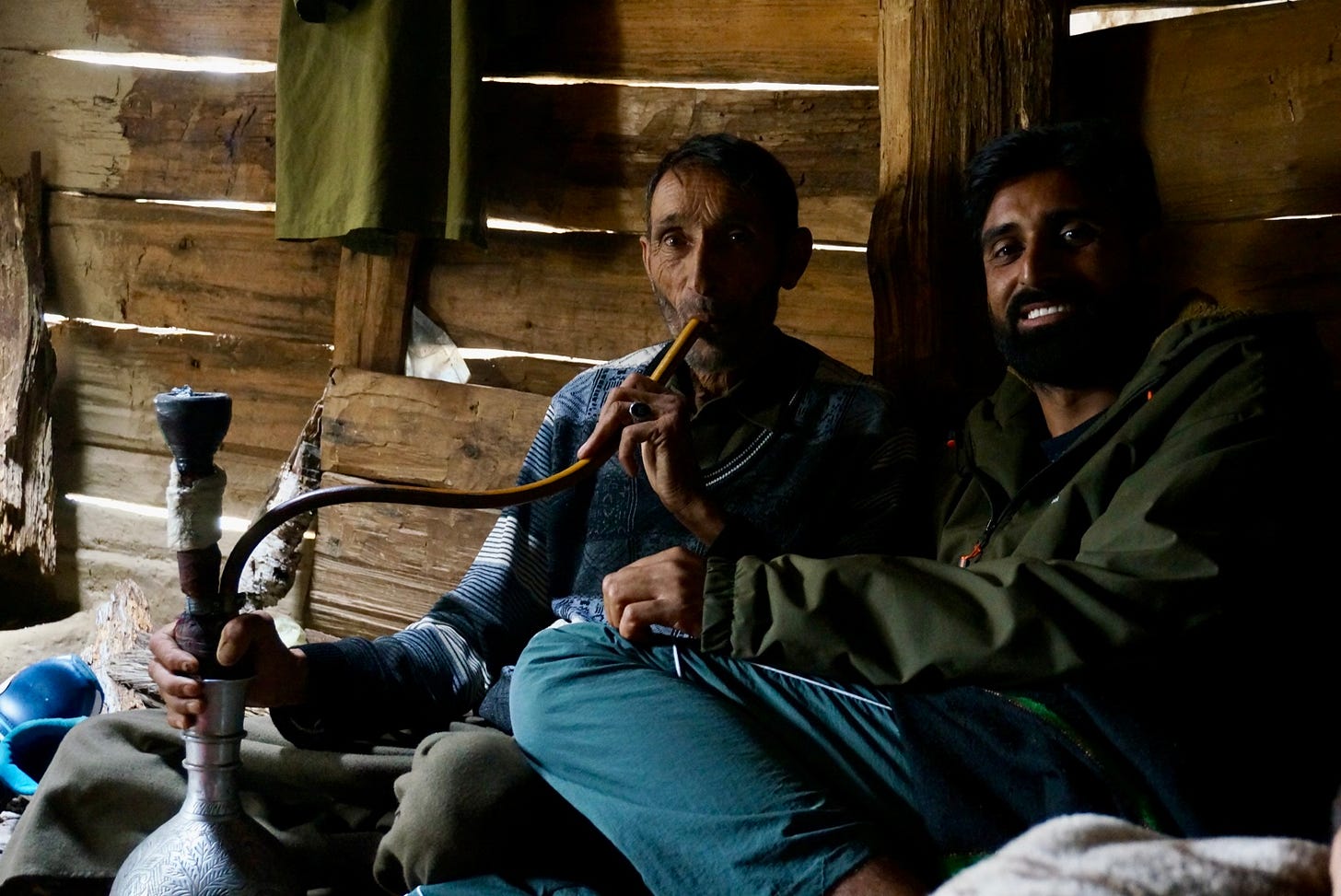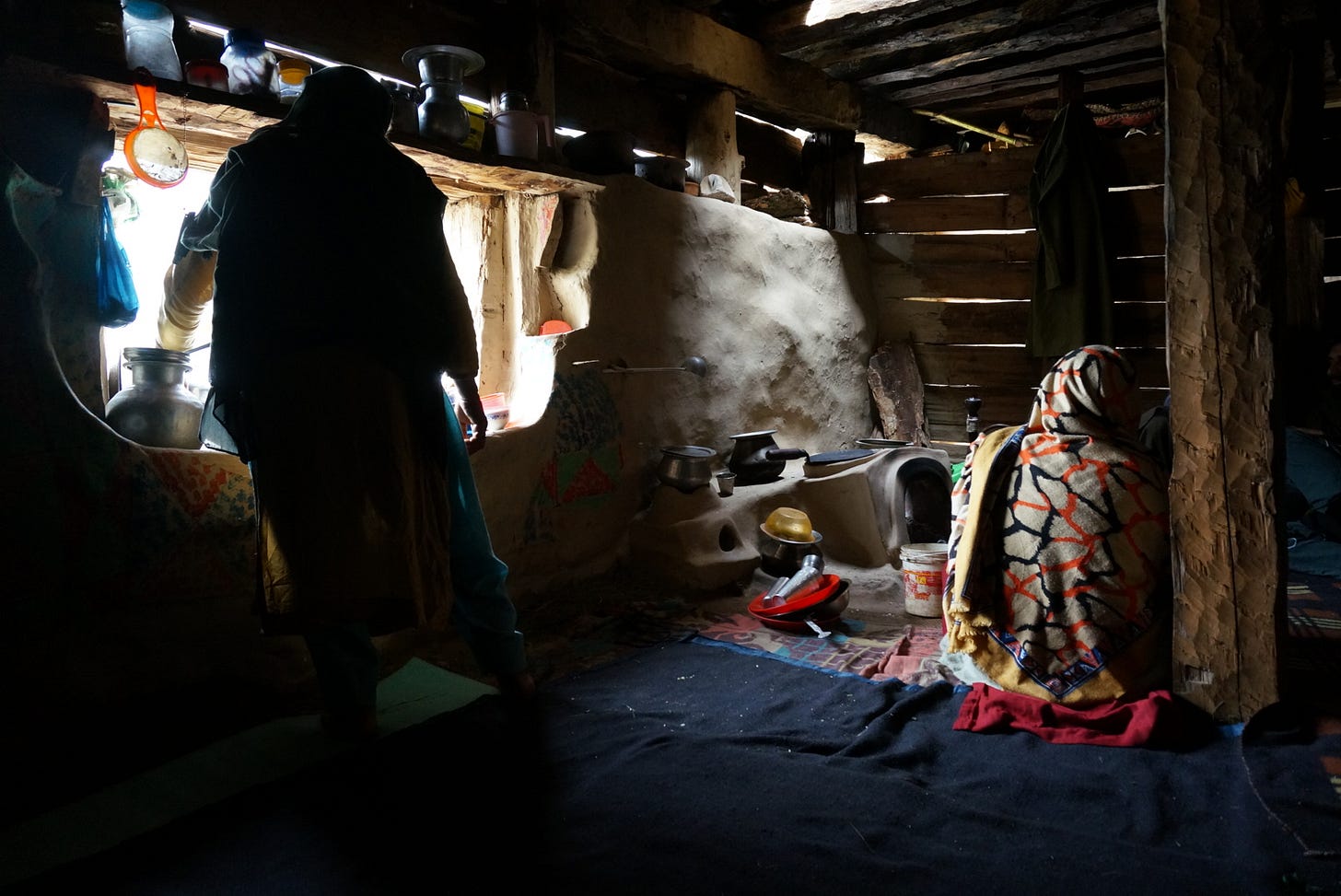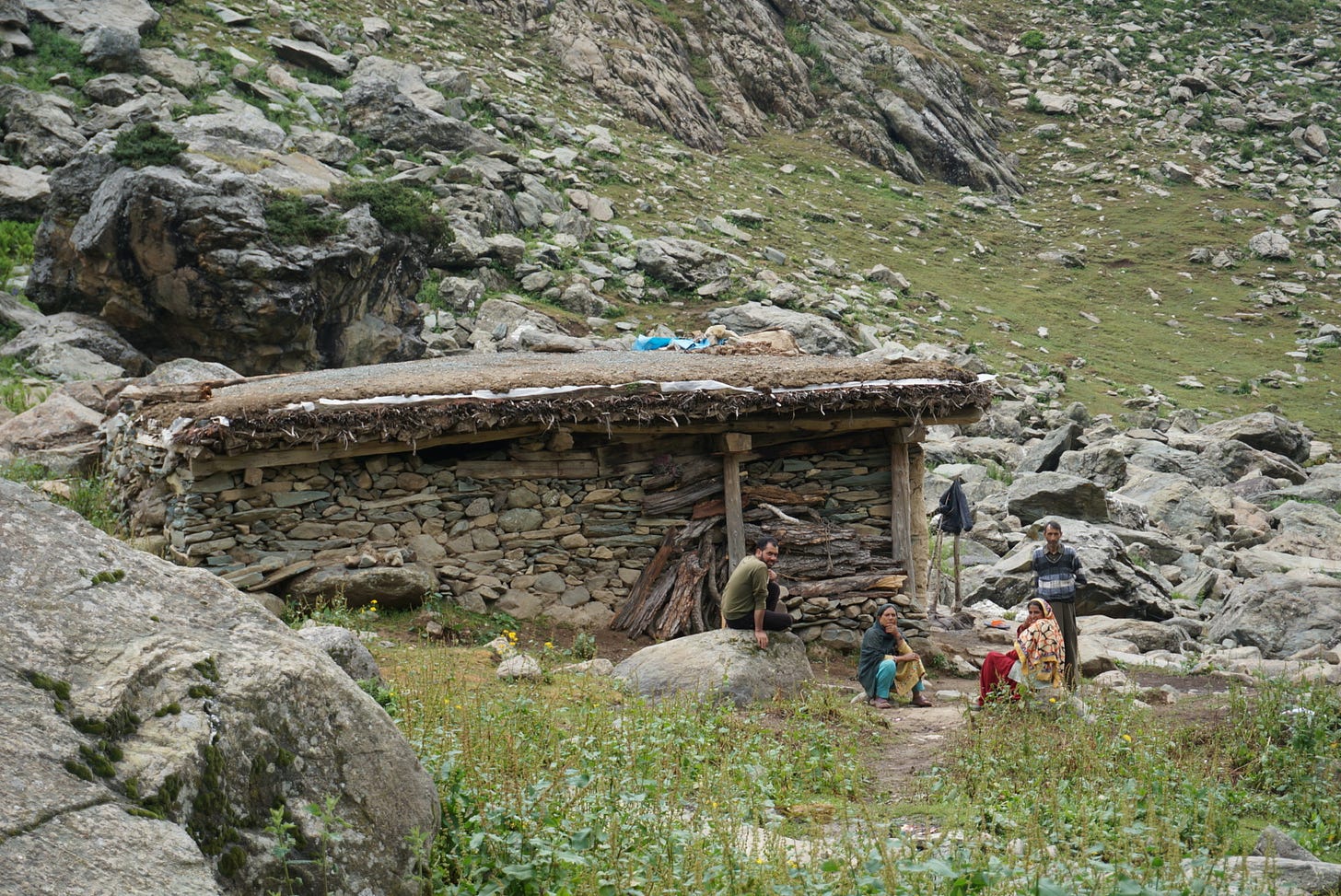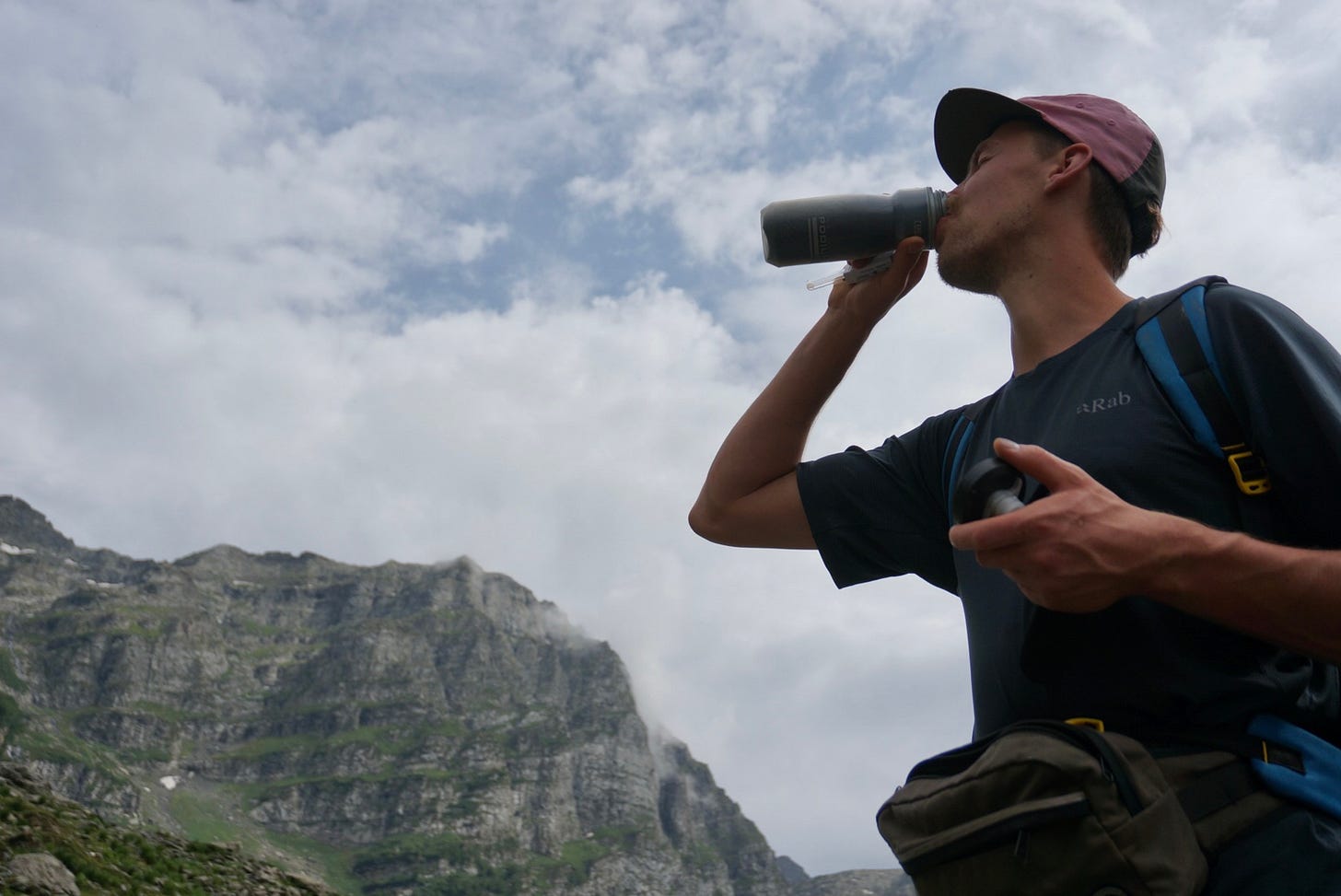Trekking for tea with nomadic shepherds
And an unwelcome guest
We peel off the highway between Sonamarg and Srinagar with nerves completely jangled, and end up, as is often the way, being invited in for chai by a family in the village of Sumbal Bala.
With scraps of English we manage to convey that we want to trek to the twin alpine lakes Tarsar and Marsar, handily accessible from Sumbal Bala via a lesser used trail.
Our host Abdul drove Cael to the nearest town to buy a pair of packs for 600 rupees each, a bargain we thought. We’ve since learnt it wasn’t such a great deal since the packs were essentially two gigantic kids’ school bags, with flimsy plastic buckles and no waist support or chest strap.
In Cael’s absence, the rest of the family sit me in a chair and inspect my skin and clothes. The mother, Shameema, picks through my hair as one might do a child with nits. It’s decided that I urgently need to wash, and I am thrust into the washroom with a pair of clean shalwar kameez to put on (my grubby bike bags can’t be trusted to produce any clean clothes).
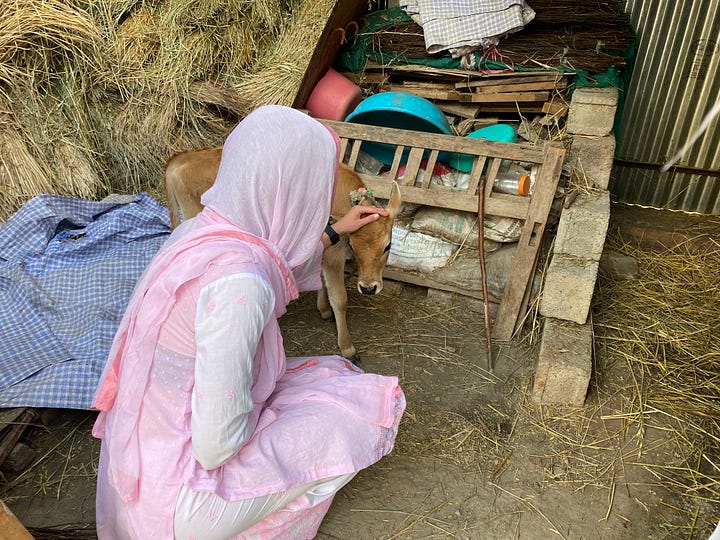
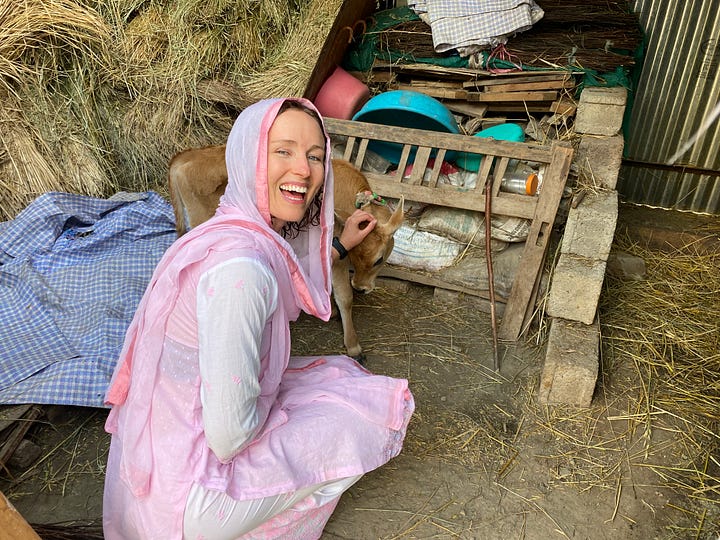
The entire family watches that evening as we pack for the trek, picking up different items with interest such as my head torch, and the skincare luxury item I’d allowed myself - a tiny bottle of rosehip oil. They ask several times if Cael or I had “perfume” and seem a little disconcerted that Cael has deodorant and I do not, having run out and not bothered to replace it.
We sleep on a thin mat on the floor of a room we suspect the family normally sleeps in but has given up for us. At around 5am we wake, drink a chai and eat a couple of roti before heading up the road to where the trail begins.
The family had been adamant we needed a guide, and that the 20km trek to the lakes, with 2000m of vertical gain, would take us at least three days, and we would need much, much more than the one cup of rice we’d measured out. We assured them we have been hiking before and we’d be back the next day.
The trail leaves the village and turns into a rocky path meandering next to a river, refreshingly unclogged by trash. We encounter a couple of women walking cattle and men carrying bundles of branches, but no one else.
A pink flower blooms from bushes with leaves similar to kowhai from back home. I’ve since learnt it is Himalayan indigo, a native from here to Afghanistan and Tibet.
We walk through a cluster of mud huts and cross several rivers via rudimentary log bridges. As we climb around the edge of one mud hut to where the trail begins to follow a steep ridge, we encounter a tiny, slender man. He’s wearing a long brown tunic and pants and holding a sturdy walking stick. On his back is a faded grey backpack and his feet are in slip-on loafers, hardly my footwear choice for this kind of terrain.
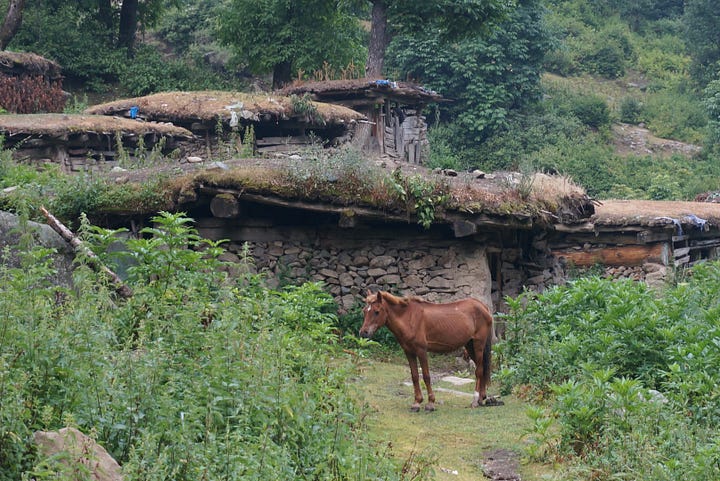
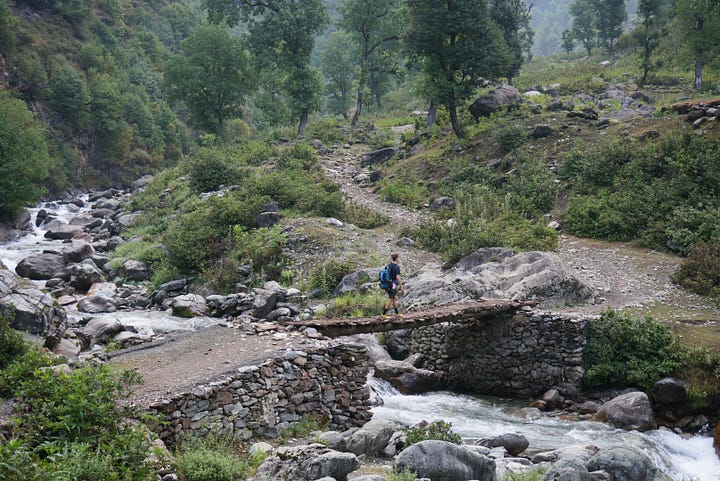
The little man’s name is Mohammed Shafi, and we can’t communicate more than to infer he is apparently a guide, and it’s clear he knows the track well. Despite the loafers, he’s setting quite a cracking pace.
About 7km in I start to feel a light wave of nausea, and wonder if it’s the altitude. But we’ve barely scraped 3000m so that doesn’t seem likely. We have to stop several times to make modifications to the cheap backpacks with bungee cord and tape, and Mohammed Shafi sits perched on a rock waiting for us.
At some point we start to hear loud cracks and rumbles, and realise beyond the mist hanging around the mountains above us there’s a thunder storm rolling through. As the rain starts to fall we shelter under a conifer to get our jackets on. Mohammed Shafi unfurls a large poncho, and as we wonder about how quickly our sleeping bags will get drenched through the cheap packs, it’s very clear who the expert is here.
We break out into a wide valley dissected by a stream cascading over rocks and through clusters of alpine flowers in various shades. Three women appear, carrying bundles of foraged firewood precariously on their heads and sporting huge grins. Mohammed Shafi leads us across a narrow log bridge towards a bunch of mud huts which marks the village of Sanamus.
He gestures that we take off our jackets and enter, and poking my head in the dim doorway I get a big lungful of smoke. “I’m not sure that’s going to be good for my cough,” I splutter to Cael. However once we’re inside and sitting on the bare earth floor, the smoke is more manageable.
We finally realise this is Mohammed Shafi’s home, and we’d met him on his grocery run. He begins to unpack the shopping - a bag of apples, a packet of biscuits, a 4L bottle of mustard oil and a big bag of beans.
His wife prepares chai over the fire while his son, a boy of about 9, darts in and out of the dwelling. At one point an animal enters the narrow hallway we’d come through, and we realise from a muffled moo from the rear that this shelter also houses livestock.
Mohammed Shafi retrieves a large hookah and extracts embers from the fire to pack the bowl.
We sip chai and Mohammed Shafi offers us some fresh bread and butter, showing us a video of the butter being made using a wooden apparatus in the corner.
I spread butter on some bread for Cael, then as I’m spreading my own I notice movement in the low light. Wondering why the butter won’t stay still I turn the bread towards the small window, and see a wriggling maggot. I show Mohammed Shafi and his wife carefully inspects the butter, but he points to the roof. Maggots falling from the ceiling is a fairly mundane occurrence when you live in a mud hut.
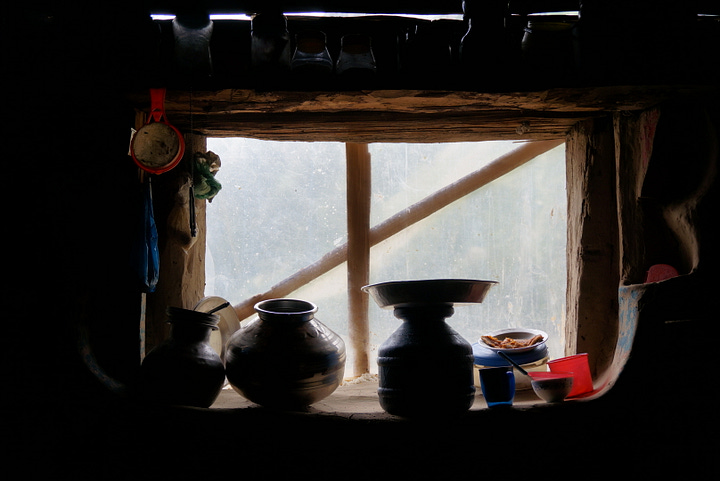
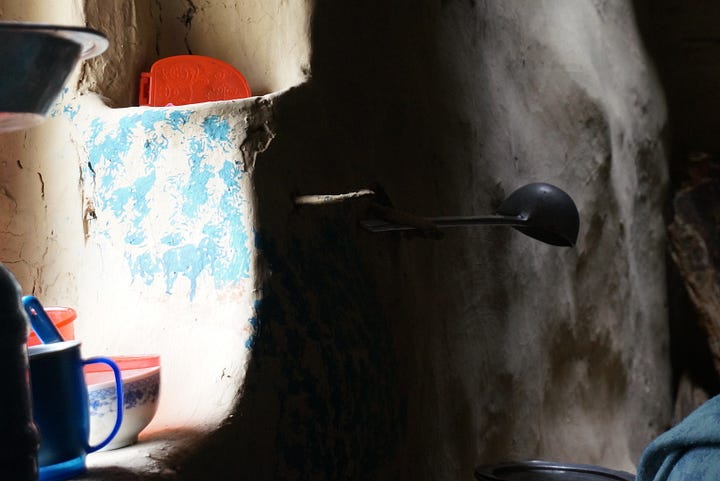
I feel a wave of intense tiredness wash over me and tell Cael I need to have a lie down. Our hosts gladly oblige and I’m soon tucked under a furry blanket on the dirt floor in the corner. Cael lies down too and we both nap for perhaps an hour.
I wake to find Cael’s sitting up and three new men have entered the hut. Cael is in conversation with one of them, and through my sleepy haze I wonder if I’m imagining things as Cael seems to be giving the man advice about hair loss, not a topic I was aware that he had any expertise in.
The man had asked Cael for tips and Cael, having discovered onion shampoo in the bathroom of our host back in Ladakh, was telling the man all about it, and informing him he needed to eat raw onions.
Soon I feel the urge to stumble outside for some fresh air, and it’s not long before I’m retching in the grass, the onset of a stomach bug that had been brewing for the past few hours.
I ask Mohammed Shafi where the toilet is, imagining the “dry toilet” hole-in-the-ground that is the norm for rural people. He leads me around the back of the hut, waves his arm in the direction of a boulder field and says, “toilet”.
I clamber a few metres over the rocks and soon find, plastered down the rocks’ edges and in the cracks between, the signs that this is indeed the toilet. I’ve no choice but to use it in my indisposed state, and since there is no water and of course, no paper, I use one of our drink bottles to squeeze a jet of water in the general direction and hope for the best.
After several more violent bouts of hurling up the last of the chai and bread, we decide there is no way we are continuing to the Tarsar Marsar lakes. The thought of camping here and continuing to use the “toilet” is also heinous, so we break the news to our new friends we are going to walk back down today.
The man who received Cael’s hair loss advice imparted some of his own helpful tips for reducing nausea. Demonstrating on his buddy, he suggests Cael apply a series of karate chop motions to my back then lift me up to crack it. Cael tells him this might not be the best course of action.
We say our farewells, which involves taking a series of photos, turning to the males wanting their own individual photos with me. This is a common occurrence but this time, Cael’s buddy politely asks me, “does your husband object?”
As we depart the rain clouds are clearing, and the rocky heights above the alpine valley revealed.
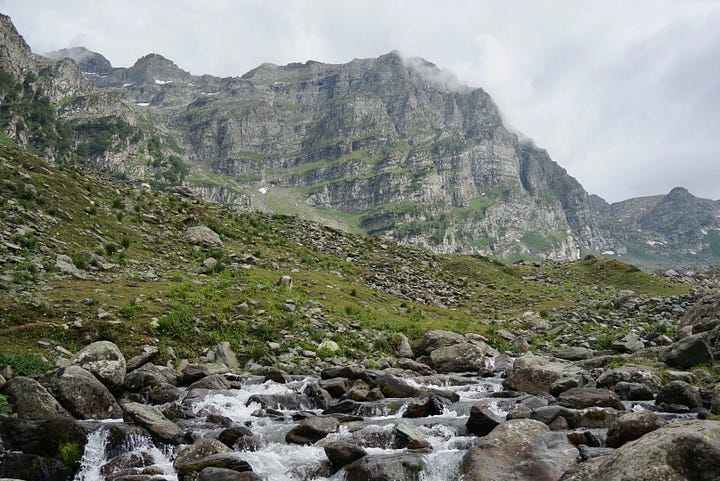

We begin our slow descent, Cael taking my pack as well as his as I muster all of my energy to move my wobbly legs down the steep trail, stopping periodically as my body tries to expel the unwelcome guest.
Our hosts back in Sumbal are surprised to see us back and suggest with concern I might need to go to hospital. I try to explain it’s OK, I just need to lie down, but the message doesn’t seem to quite land as Cael essentially has to barricade the door to prevent various family members from barging in and bellowing at me as I cower under a blanket.
With the door to my room closed and curtains shut finally, Cael goes to have a wash, but making the most of his absence Shameema again comes barreling in, flicking the fluorescent bulb on and loudly introducing a new extended family member she’d brought to meet me.
Needless to say we were hasty in our departure the following morning.
While a top contender for worst timing to be unwell, I’m grateful we got to see how nomadic people are still living in the mountains of Kashmir. Our time spent in their alpine home will be among our most authentic experiences here.


